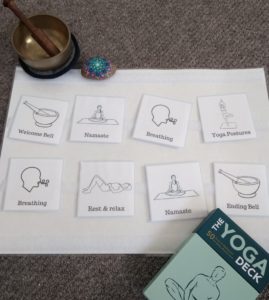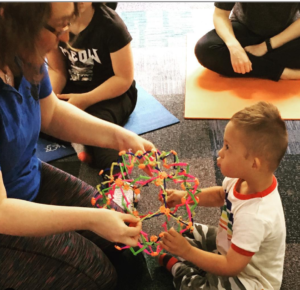COVID-19 has had, and will continue to have, an impact on the mental health and wellbeing of children and young people. It’s been a time of increased uncertainty, missed education and social isolation. According to The Centre for Mental Health, this year’s report from the NHS Benchmarking Network shows a record number of referrals into Child and Adolescent Mental Health Service (CAMHS) – a 15% increase in just one year.
With the inevitable increase in demand for CAMHS, we may need to think outside the box when it comes to supporting children and young people with their mental health and wellbeing. Yoga Therapy may provide a creative alternative approach.
What is Yoga Therapy?
Yoga therapy works in a holistic way, supporting the body, mind and heart. Children’s yoga therapy combines a psychological approach with traditional yoga practices (such as stretching, movement, breathing, sound and relaxation) and tailors them to the needs of individuals or small groups. The intention of yoga therapy is to equip children and young people with skills to support their own wellbeing and resilience.
What is the evidence?

Research has shown that regular yoga practice can result in measurable physiological changes, which in turn can have a measurable positive impact on a person’s mental health and wellbeing. There is an emerging evidence base that yoga therapy has a positive benefits for children and young people experiencing a range of difficulties, such as low mood, anxiety, anger, attention and concentration difficulties, trauma and neurological differences.
Who can benefit?
 Yoga therapy can support children and young people with a range of difficulties, and is particularly useful for children and young people who would benefit from a psychological approach, but who may find it difficult to engage meaningfully in talking therapies for a number of reasons.
Yoga therapy can support children and young people with a range of difficulties, and is particularly useful for children and young people who would benefit from a psychological approach, but who may find it difficult to engage meaningfully in talking therapies for a number of reasons.
Yoga therapy interventions can be commissioned privately by families, or can be delivered within education and childcare settings. If you are interested in finding out more about yoga therapy for children and young people then please get in touch.

